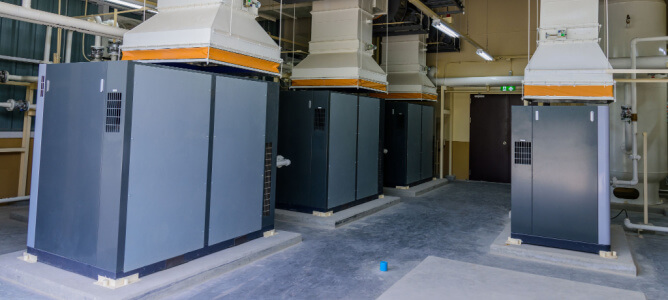
Signs It’s Time For An Air Compressor Audit
Air compressors are critical components for the day-to-day running of facilities. Hence, you must ensure proper functioning to maximize efficiency and minimize costs. Compressor air assessment and audit are two methods for examining air compressor systems in facilities. This article highlights some factors that differentiate these methods and explores some indications that your air compression system requires servicing.
The Importance of Compressed Air System Audits
Operators require air compressor audits to ascertain energy output waste in daily operations in their facilities. Moreover, these audits can identify inefficiencies in compressed air systems and recommend measures for fixing them and minimizing operational costs. Recommendations from air compressor audits are essential to compressed air systems since they enable operators to address several issues, including the following:
- Plugging previously undiscovered leaks
- Replacing bad piping
- Monitoring system pumps
- Eliminating system overpressurization
- Handling insufficient system storage issues
- Examining air requirements
- Improving system maintenance
- Monitoring system pumps
Complying with the recommendations of the audit team can lead to significant cost reductions and increased energy efficiency.
Compressed Air Audits Vs. Assessments
Although compressed air audits and assessments give actionable insights into the operating condition of air compression systems in facilities, they differ in several ways, including costs, complexity, and duration. Unlike compressed air assessments that exhibit minimal cost requirements, audits are more cost-intensive.
Compressed air assessments are complementary to the manufacturer, allowing operators to quickly understand the effectiveness and efficiency of their compressed air systems at no charge.
Compressed air audits, on the other hand, require a specialized audit team to perform an in-depth system analysis and recommend the best way to handle relevant issues at a comparatively higher cost. Moreover, compared to audits that require several data loggers for parameter measurements all over the facility, compressed air assessments are less complex as they focus on the supply side of the compression system to maximize energy efficiency and reduce energy costs. Lastly, while air compressor risk assessments are rapid, audits require more time, ranging from 7 to 14 days, for observing, recording, and analyzing system dynamics, implementing recommendations, and verifying performance.
What’s Involved in an Air Compressor Audit?
If you favor an air compressor audit over an assessment, it is critical to know the steps involved. The audit team takes five key steps to achieve an in-depth examination of compressor systems in facilities, including:
- Surveying the site
- Measuring relevant output
- Evaluating system dynamics
- Implementing recommendations
- Verifying performance
The initial step of surveying the site is necessary to account for the compressor type and model, each component in the system, such as storage, air dryer, and piping, and understand every measurement parameter. The audit team then takes relevant measurements, including power output and flow rates at peak and non-peak times. The collected data is critical for evaluating system dynamics and identifying areas that require improvements and parts of the facility that receive excessive compressed air.
Moreover, the team makes relevant recommendations to align system power consumption with efficient compressed air usage in the facility, ultimately maximizing overall system efficiency. In addition to eliminating inappropriate compressed air usage, the recommendation borders on fixing leakages and upgrading inefficient equipment. Finally, the audit team verifies the impact of implementing relevant recommendations on the efficiency of the air compressor system by taking post-assessment measurements.
How Do I Know if it’s Time to Assess My Air Compressor?
One indication that your air compressor system needs assessment and corresponding servicing includes increased difficulty in turning on the system. A faulty air compressor would not turn on and requires you to schedule air compressor repairs. Moreover, the system will begin to lose pressure. Leakages are likely causes of pressure decline in air compressors, which is detrimental to energy efficiency as they will require excessive energy to operate. Learn more about air pressure leak tests.
Although industrial air compressors are loud, if you notice that your equipment becomes louder than usual, it is an indication that something is wrong. Some common issues that can result in more noisy air compressors include improper mounting, loose machinery parts, crankcase issues, and piston-valve plate contact. Other indications that your air compressor requires assessment and servicing include excessive oily air discharge, undue overheating, excessive moisture discharge, and circuit breaker tripping. You must schedule professionals to assess and service your system whenever you notice these signs.
NiGen Offers Professional Air Compressor Services
NiGen is committed to offering our clients the industry-best air compressor solutions for several industrial applications. We efficiently meet industry and customer specifications with our long-standing expertise in professional air compressor services.
Contact us today for all your air compressor testing and servicing needs!

